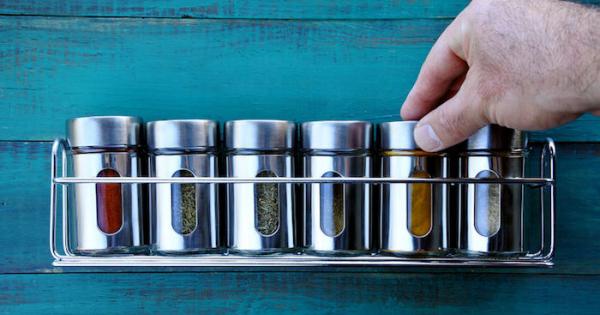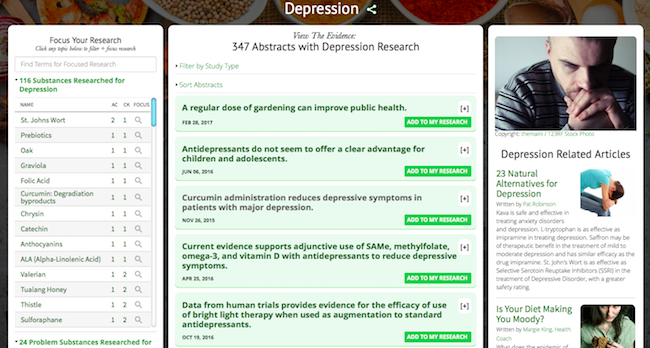Originally published on: March 16th 2017
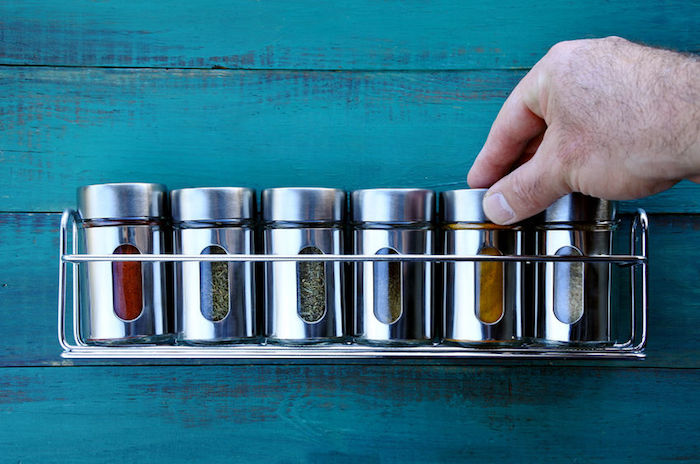
Mental health disorders are often treated with harmful drugs with a myriad of dangerous side effects. Studies show that you can look to your kitchen instead of the pharmacy to ease symptoms of depression and anxiety safely and effectively
Mental health disorders such as anxiety and depression affect over 40 million American adults – almost 18% of the population. Unfortunately, conventional medicine’s first line of defense is often to treat mental illness with a pill. But these pharmaceuticals have been proven time and time again to have some seriously dangerous and long-term health consequences. Thankfully, nature once more is proving that a pharmaceutical isn’t always the best approach. Instead, three common kitchen condiments/ herbs and spices are emerging as promising phytotherapies for some of the most debilitating mental health issues plaguing so many today.
Often the root cause of mental illness such as anxiety and depression can be attributed to physiological factors in the body such as inflammation or to nutrient deficiencies or even to hormonal imbalances. Luckily, we can often turn to our own kitchen when it comes to these issues and use food as medicine to rebalance our systems, reduce inflammation and nourish our body and in turn, our mind.
Curcumin
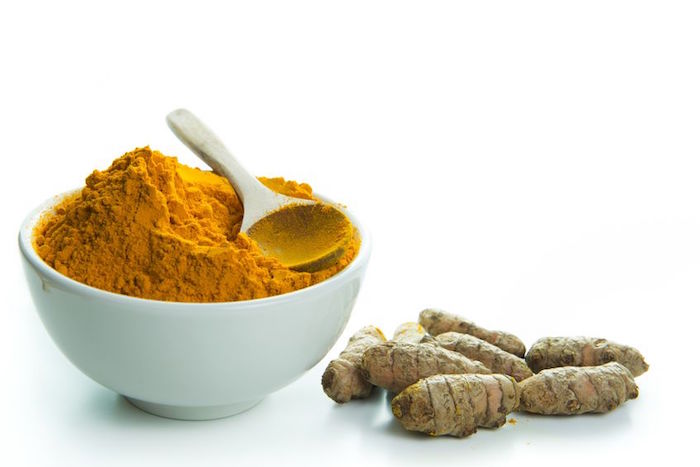
Curcumin – the active component of turmeric – continues to prove itself as a standout herb when it comes to benefiting our health including our mental health. In a randomized controlled trial curcumin was compared against a popular antidepressant for efficacy in people with major depressive disorder. The study provided clinical evidence that curcumin may be used as an effective and safe treatment for those suffering from depression. Another study involving 108 male adults compared those taking an antidepressant plus a placebo to those taking an antidepressant plus 1000mg of curcumin. The curcumin group showed a significant decrease in cortisol and inflammation – key players in mental health disease – as well as depression rating scores. The study concluded that curcumin might have the potential to reverse the development of depression and enhance the outcome of antidepressant treatment in major depressive disorder. Additionally, in a randomized, double-blind, placebo-controlled study, 56 individuals with major depressive disorder were treated with curcumin (500 mg twice daily) or a placebo for 8 weeks. From weeks 4 – 8 curcumin was significantly more effective than the placebo in improving several mood-related symptoms.
So it would seem that once more this super star of spice proves itself to be of immense benefit when it comes to helping us achieve optimal health and happiness.
Rosemary
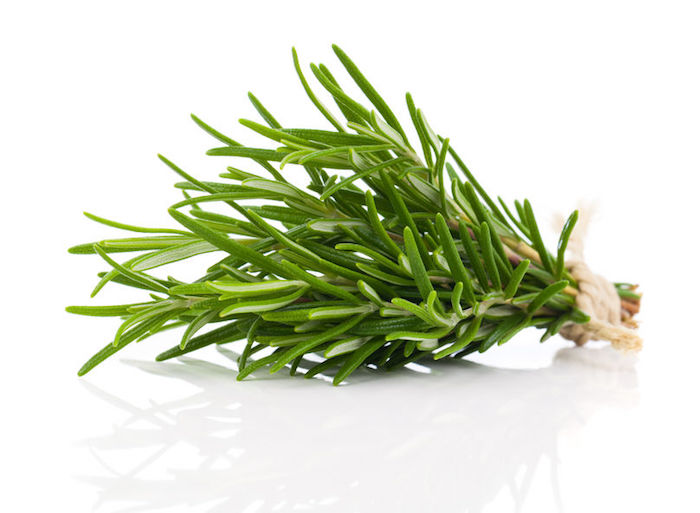
Rosemary is a very common kitchen herb used in a variety of cooking but it’s also a herb that has long been used in traditional medicine – and for good reason. Rosemary was shown in a mouse study to exert anti-anxiety and antidepressant effects specifically when drunk as a tea infusion. Another study showed three compounds extracted from rosemary – rosmanol, cirsimaritin and salvigenin – exhibited anti-anxiety and antidepressant effects on mice by acting on their central nervous system.
It’s not just consuming rosemary that produces the mental health benefits: rosemary essential oil has also proven powerful in reducing stress and anxiety. This was reflected in a study involving graduate nursing students who, after being exposed to rosemary essential oil, scored lower on anxiety tests as well as personal anxiety statements and also exhibited reduced pulse rates. Another study, which used rosemary extract in combination with lavender, marjoram, eucalyptus, and peppermint, showed significant decreases in depression scores in the group of people exposed to the essential oil combination.
Rosemary not only delivers a delicious flavour to our food but it also makes for a calming and enjoyable essential oil blend that has a positive affect on mental health.
Saffron
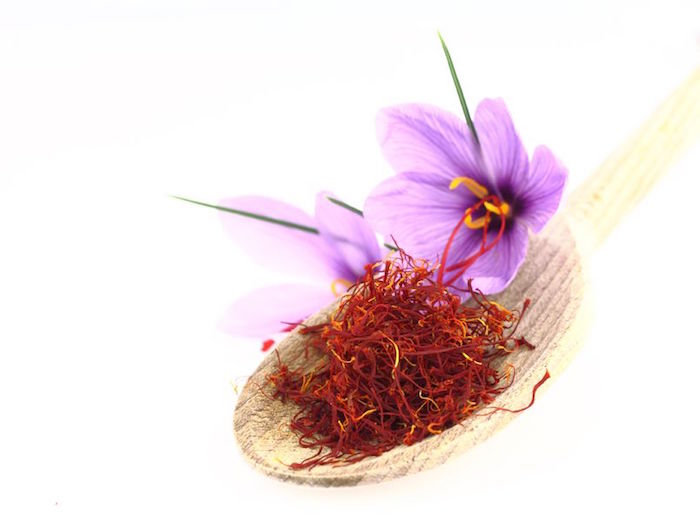
Saffron has been used in traditional medicine for a multitude of ailments. From insomnia to anxiety as well as depression, the world’s most expensive spice may very well justify its hefty price tag when it comes to its mental health benefits. Multiple studies have looked at saffron’s ability to reduce anxiety and depression including a randomized, double-blind, placebo-controlled clinical trial that showed a significant reduction in depression and anxiety in subjects who were given either a popular antidepressant combined with crocin, (the main active component of saffron) or the same antidepressant plus a placebo pill. Another randomized, double-blind trial involved people who had mild to moderate depression. They were given either a well-known antidepressant or saffron capsules. This study concluded that short-term therapy with saffron produced the same effects as the antidepressant medication, (but without the side effects). These aren’t the only studies of their kind. Another study also compared an antidepressant against saffron and concluded that saffron is as effective as popular antidepressants in treating mild to moderate depression. And a meta analysis of clinical trials indicated that saffron supplementation can improve symptoms of depression in adults with major depressive disorder.
When it comes to our mental health it’s important to remember that the food we consume can have a very real impact on how we feel emotionally. The first line of defense for mental health should be diet and lifestyle strategies before the introduction of pharmaceuticals, which can posses harmful long-term side effects. Using these common kitchen condiments/ herbs and spices in conjunction with a whole foods diet can increase your chance of being able to side step these drugs and overcome anxiety and depression naturally and healthfully.
For evidence-based research on depression, visit the GreenMedInfo.com Research Dashboard.
Tara is a Registered Holistic Nutritionist who also has training from the Institute for Functional Medicine, specifically in hormones. Her practice focuses on helping busy mums navigate the overwhelm, guilt and confusion surrounding how to live healthfully in a hectic world, by providing evidenced-based functional nutrition and lifestyle strategies to her clients. Tara is a mummy of two, an entrepreneur, and a writer who writes for publications around the globe with a specific focus on nutrition. She runs her business online in order to help as many women as possible live the lives they deservea not ones fraught with hormonal imbalances and all the problems that come along with them. Her own struggles with hormone imbalance were what lead her on this path and are why she’s able to understand and empathize with the struggles of the modern day mum.
© March 16th 2017 GreenMedInfo LLC. This work is reproduced and distributed with the permission of GreenMedInfo LLC. Want to learn more from GreenMedInfo? Sign up for the newsletter here https://www.greenmedinfo.com/greenmed/newsletter.
Source: Original Article
Originally published on: March 16th 2017

